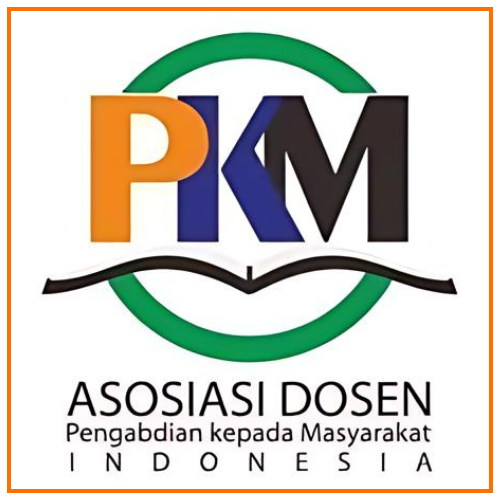Investigating EFL Kindergarten Teachers' Media and Challenges in Teaching Vocabulary
Abstract
Keywords: Challenges; EFL Teachers; Media; Vocabulary; Young Learners.
Full Text:
PDFReferences
Abrar, M. (2016). Teaching English problems: An analysis of EFL primary school teachers in Kuala Tungkal. In The 16th Indonesian Scholars International Convention (pp. 94-101).
Antika, R. (2021, January). The effects of English songs in learning vocabulary for young learners. In The 10th National Online Seminar on Linguistics, Language Teaching, and Literature, 10(1), 119-131.
Blandford, A. E. (2013). Semi-structured qualitative studies. Interaction Design Foundation.
Bonnet, C. (n.d). Shhhh...Don't Tell, but Noisy Classrooms Have Their Benefits. Accessed from https://www.twinkl.co.id/blog/noisy-classroom-benefits.
Braun, V., & Clarke, V. (2006). Using thematic analysis in psychology. Qualitative research in psychology, 3(2), 77-101.
Brining, D. (2015). The challenges faced by teachers of English as a foreign language to young learners in international contexts and their training and development needs and opportunities (Doctoral dissertation, University of York).
Burns, A. & Joyce, H. (1997). Focus on speaking. Sydney: Macquire University Press.
Celik, S. & Toptas, V. (2010). Vocabulary learning strategies of Turkish EFL learners. Procedia - Social and Behavioral Sciences, 3, 62-71.
Creswell, J. (2012). Educational research: planning, conducting, evaluating, quantitative and qualitative research (Fourth Edition). London: Pearson Education Inc.
Devanti, Y. M. (2018). The Use of Video as a Media to Improve Students’ Vocabulary Mastery. ELLITE: Journal of English Language, Literature, and Teaching, 3(1), 42-47.
Elhamdi, O. E. H., & Hezam, A. M. M. (2020). Challenges for Methods of Teaching English Vocabulary to Non-native Students. Advances in Social Sciences Research Journal, 7(5), 556-575.
Er, S. (2013). Using total physical response method in early childhood foreign language teaching environments. Procedia-Social and Behavioral Sciences, 93, 1766-1768.
Fachriyani, I., & Syafe'i, A. F. R. (2018). Using karuta game in teaching vocabulary to young learners. Journal of English Language Teaching, 7(1), 32-39.
Fahriany, F., Fitriani, F., Farhan, L., Husna, N., Hidayat, D. N., & Mahlil, M. (2022). Teachers’ Challenges in Teaching Online English to Young Learners: A Case Study in Pandemic Era. Jurnal Basicedu, 6(4), 5533-5541.
Fanani, A., & Kusmaharti, D. (2018). Pengembangan pembelajaran berbasis HOTS (higher order thinking skill) di sekolah dasar kelas V. Jurnal Pendidikan Dasar, 9(1), 1-11.
Gruss, J. (2016). Games as a tool for teaching English vocabulary to young learners. Department of English Language, Higher School of Foreign Languages name of Samuela Bogumila Lindego, Poland.
Hariyono, T. C. (2020). Teaching vocabulary to young learners using video on YouTube at English course. Language Research Society, 1(1). 41-46.
Hatch, E. & Brown, C. (1995). Vocabulary, semantics, and language education. Cambridge University Press.
Hornby, A. S. (2006). Oxford Advanced Learner’s Dictionary of current English. Oxford University Press, Oxford [OALDCE].
Lelawati, S., Dhiya, S., & Mailani, P. N. (2019). The teaching of English vocabulary to young learners. PROJECT (Professional Journal of English Education), 1(2), 95-100.
Marzuki, A. G., Santiana, Kuliahana, A., Alek, Fadhilah, N., Darmawati, B., & Bin-Tahir, S. Z. (2021). The teaching of EFL vocabulary through anticipatory learning strategy in Islamic higher education context in Indonesia. Proceedings of the International Conference on Industrial Engineering and Operations Management, 3543–3551.
McDevitt, T. M., & Ormrod, J. E. (2008). Fostering conceptual change about child development in prospective teachers and other college students. Child Development Perspectives, 2 (2), 85-91.
McMillan, J. H., & Schumacher, S. (2010). Research in Education: Evidence-Based Inquiry, MyEducationLab Series. Pearson.
Musarrat, M. A. I. M. U. N. A. (2011, May). Challenges of teaching EFL to very young learners. In 5th International BELTA Conference, Dhaka, Bangladesh.
Nasri, C. (2022). Effective Vocabulary Teaching Strategies to Enhance EFL Learners’ Reading Abilities: A Case Study. JELITA: Journal of Education, Language Innovation, and Applied Linguistics, 1(2), 66-78.
Nunan, D. (2011). Teaching English to young learners. Anaheim University Press.
Oktaviani, H. (2021). The effect of using songs to increase young learners’ vocabulary achievement through WhatsApp. Jurnal Ilmiah Spectral, 7(2), 75-85.
Putri, S. A., & Listyani, L. (2020). Kindergarten teachers ’strategies to teach English vocabulary in a monolingual school in Ambarawa, Indonesia. Prominent, 3(2), 287-304.
Purwaningsih, R.D and Purwandari A. G. (2017) Implementing thematic songs in teaching vocabulary skills to elementary students in Taman Baca Masyarakat Kudi Gunung Cunil Banyumas. Padang: English Department Faculty of Languages and Arts of Universitas Negeri Padang.
Patton. M. Q. (2002). Qualitative research and evaluation methods (3rd ed.). Thousand Oaks, CA: Sage Publications.
Pertiwi, R. S., Salabiyati, I., Damara, D., & Pratolo, B. W. (2020, February). The Teacher’s Perspectives about Challenges of Teaching English for Young Learners: A Case Study at English Course for Young Learners. In 3rd International Conference on Learning Innovation and Quality Education (ICLIQE 2019) (pp. 65-74). Atlantis Press.
Rahmadhani, P. A. (2015). Techniques in teaching vocabulary to young learners at LIA English course. TELL-US Journal, 1(2), 1-8.
Ratminingsih, N. M., & Budasi, I. G. (2018). Local culture-based picture storybooks for teaching English for young learners. In SHS Web of Conferences (Vol. 42, p. 00016). EDP Sciences.
Rusiana, R., & Nuraeningsih, N. (2016). Teaching English to young learners through traditional games. Language Circle: Journal of Language and Literature, 10(2), 193-200.
Sari, I. P., Asahra, E. E., & Yana, Y. (2019). Improving students’ vocabulary mastery using English song. Project (Professional Journal of English Education), 2(3), 410-415.
Schmitt, N., & Schmitt, D. (2020). Vocabulary in language teaching. Cambridge university press.
Stake, R. E. (1995). The art of case study research. SAGE Publications.
Strouse, G. A., Nyhout, A., & Ganea, P. A. (2018). The role of book features in young children's transfer of information from picture books to real-world contexts. Frontiers in Psychology, 9, 50.
Syafrizal, S., & Haerudin, H. (2018). The implementation of vocabulary building strategy in teaching English vocabulary to young learners. Jo-ELT (Journal of English Language Teaching) Fakultas Pendidikan Bahasa & Seni Prodi Pendidikan Bahasa Inggris IKIP, 5(1), 40-48.
Ur, P. (2012). A course in English language teaching. Cambridge University Press.
Widodo, A., & Dewi, S. R. (2019). Revealing problems on teaching English for young learners at Al–Azhar 55 Islamic Primary School Yogyakarta and how to solve them. Jurnal Varidika, 30(2), 21-29.
Wright, A. (2004). Pictures for language learning. Cambridge University Press.
Wulanjani, N. A. (2016). Meningkatkan minat membaca melalui gerakan literasi membaca bagi siswa sekolah dasar. Jakarta: Journal.unj.ac.id.
DOI: https://doi.org/10.37058/jelita.v2i1.5229
Refbacks
- There are currently no refbacks.








Journal of Education, Language Innovation, and Applied Linguistics
Lembaga Penelitian, Pengabdian Kepada Masyarakat dan Penjaminan Mutu Pendidikan (LP2M-PMP) Universitas Siliwangi
Jalan Siliwangi Number 24, Kota Tasikmalaya - 46115
West Java, Indonesia










